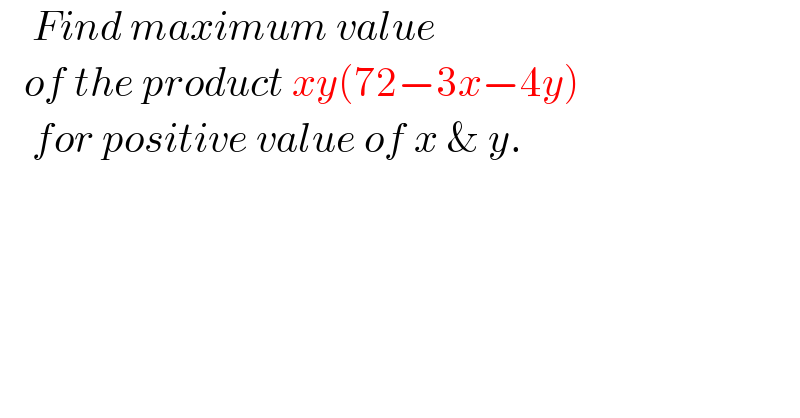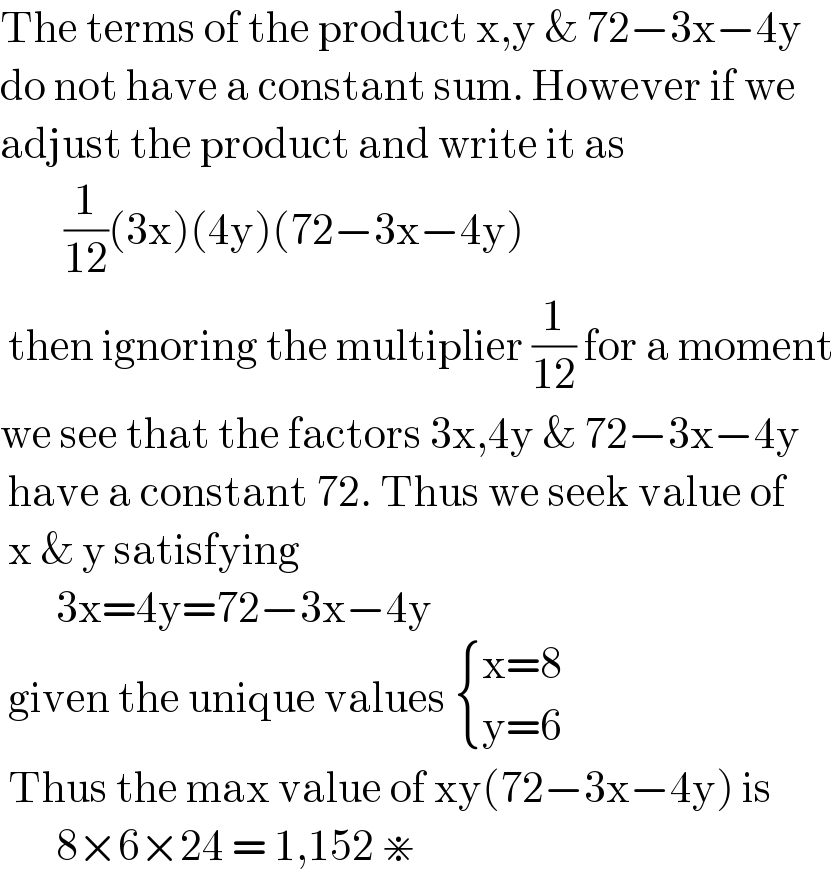
Question and Answers Forum
Question Number 141164 by iloveisrael last updated on 16/May/21

Commented bymitica last updated on 16/May/21

Answered by EDWIN88 last updated on 16/May/21

Commented byiloveisrael last updated on 16/May/21

Answered by mitica last updated on 16/May/21

